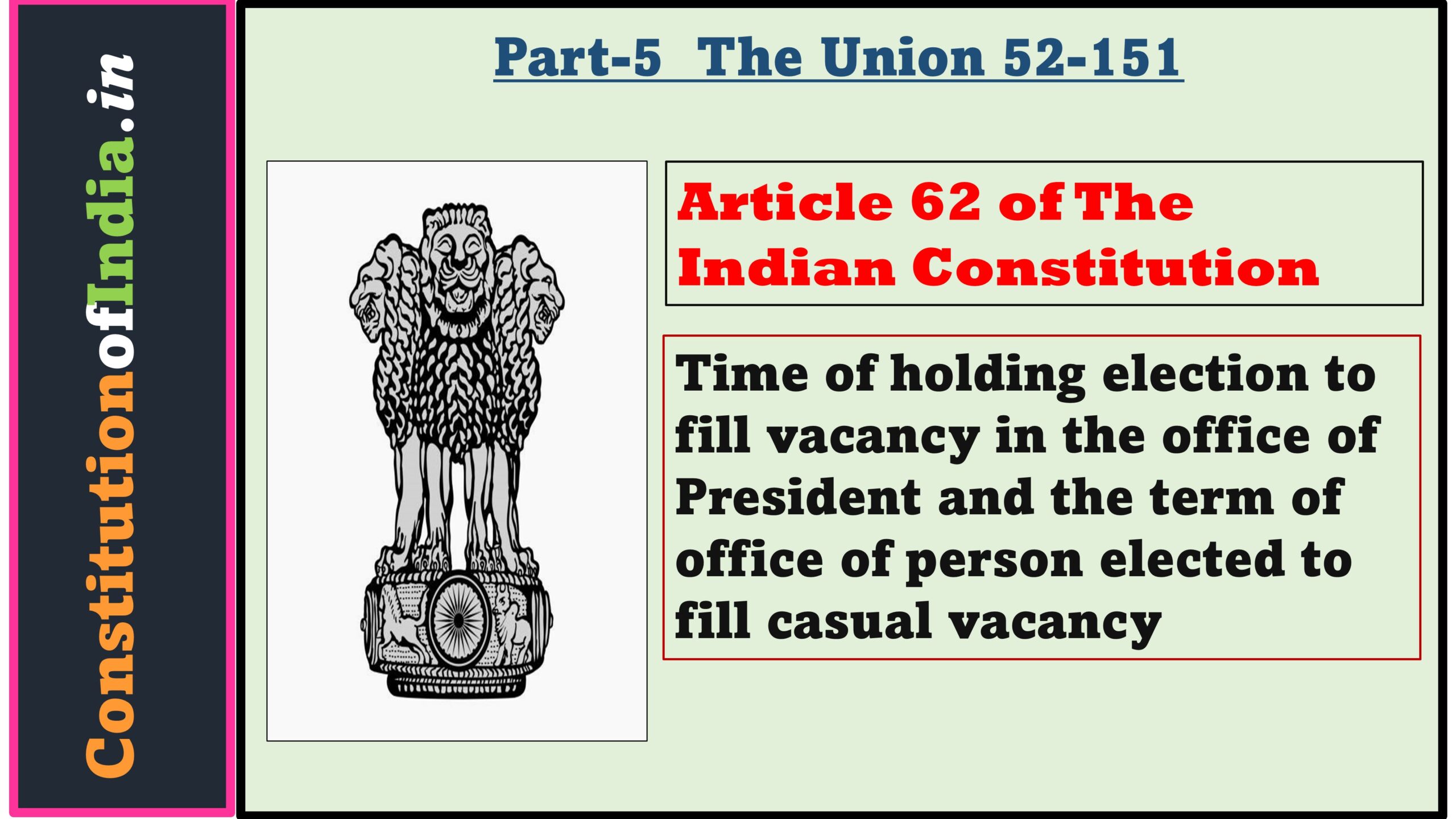Article 62 of Indian Constitution: Time of holding election to fill vacancy in the office of President and the term of office of person elected to fill casual vacancy .

Article 62 Time of holding election to fill vacancy in the office of President and the term of office of person elected to fill casual vacancy – Constitution Of India.
(1) An election to fill a vacancy caused by the expiration of the term of office of President shall be completed before the expiration of the term.
(2) An election to fill a vacancy in the office of President occurring by reason of his death, resignation or removal, or otherwise shall be held as soon as possible after, and in no case later than six months from, the date of occurrence of the vacancy; and the person elected to fill the vacancy shall, subject to the provisions of article 56, be entitled to hold office for the full term of five years from the date on which he enters upon his office.
Article 62 of Indian Constitution
Article 62 – Filling Vacancy in the Office of President (in simple words)
| Clause | Description |
|---|---|
| 1 | When a President’s term ends, an election to replace them must be completed before their term ends. |
| 2 | If a President’s office becomes vacant due to their death, resignation, removal, or other reasons, an election to replace them should happen as soon as possible but no later than six months from the date of the vacancy. The newly elected President, subject to Article 56, will serve a full term of five years starting from the day they take office. |
Explanation Using Example
Consider a scenario where the Vice President of India, who is also the ex officio Chairperson of the Rajya Sabha (the Upper House of Parliament), needs to temporarily assume the responsibilities of the President due to the President’s absence, illness, or any other reason, as stated in Article 65 of the Indian Constitution.
Example: Let’s say the President of India is traveling abroad for an official state visit, and during this time, the Vice President needs to step in and carry out the duties of the President.
During this period:
- The Vice President cannot simultaneously serve as the leader of the Rajya Sabha, as per the Indian Constitution. This means that they cannot preside over the sessions or perform the functions of the Rajya Sabha Chairperson.
- Moreover, since the Vice President is temporarily fulfilling the role of the President, they are not entitled to receive the salary or benefits that the chairperson of the Rajya Sabha normally receives, as per Article 97 of the Constitution.
This example illustrates how the provisions of the Indian Constitution ensure that the Vice President’s role and responsibilities are clearly delineated, and they are compensated appropriately based on the duties they perform, whether as the Chairperson of the Rajya Sabha or as the acting President of India.